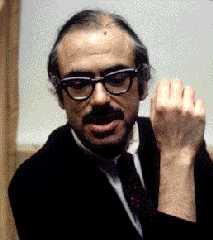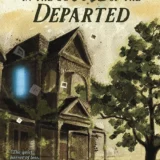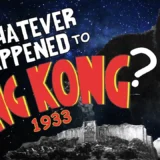 I first met Barry, I don’t remember exactly when. It was certainly at a convention at least somewhat adjacent to New Jersey, where we both lived. The fact that we shared a state of origin was of little consequence, as anyone who knew him would know.
I first met Barry, I don’t remember exactly when. It was certainly at a convention at least somewhat adjacent to New Jersey, where we both lived. The fact that we shared a state of origin was of little consequence, as anyone who knew him would know.
He took some getting used to; if Barry was fiery and passionate about something, you definitely felt the heat; if you could stand up to it, you definitely learned something. Maybe something you didn’t want to learn, but you learned it.
Barry was briefly an editor of Amazing Stories, and he figured in my search for the “missing” Bertram Chandler story that had been submitted to Ellison’s Last Dangerous Visions (and not included in the Syraczynski edition). Barry had worked for the Scott Meredith Literary Agency (who handled a lot of SF and Fantasy authors back in the day) and a story, recounted in some fanzine or other, had clued me in that he was known to bring a box of unpublished stories to magazine editors, looking to find them a home. My query to him regarding Chandler was (remembering vaguely) that the box was long gone and he had no memory of whether or not he had ever handled any ms. from Chandler.
His stint with Amazing was also fraught, taking place during the era in which it had been taken over by Ultimate Publishing and given little to no budget to work with; he held the title for all of seven months, threatening to quit over art work acquisitions and being fired shortly thereafter over the phone. Like Joseph Ross (Joe Wrzos) and Harry Harrison before him, he struggled with the limitations imposed by the publisher. Ted White took over after him. Neither Ross, Harrison nor Malzberg should be held responsible for the magazine issues of that era. I’m sure Barry would have quit if he had been given the chance. He had integrity and was not afraid to stick to his guns.
Before I met him, I had discovered his two novels centered on the science fiction community – Dwellers in the Deep and Gather in the Hall of the Planets. At one point or another I remarked to him about how well he had portrayed certain types of Fans in those novels, particularly popular authors and magazine collectors (of which I am a member of the latter). I was astonished by his statement that prior to having written those stories, he had had no personal experience of Fandom or its community. Again, this was a while ago, so memory is vague, but I believe he explained his accuracy by casting an eye on humanity in general, and that much of Fandom was obvious and predictable. I’m not comfortable with that assessment, but I recognize that there is some truth to it.
I think his most telling and long lasting influence on our genre can be found in Beyond Apollo, where he stripped the veil away from the space program, informing us all that it had been nothing more than a political stunt and that there was no grand future among the stars awaiting us. Again, I’m not comfortable with that assessment, but recognize its prescience (it was first published in 1972, the year NASA’s Apollo program ended) and its truths. As recently as the Readercon held in 2012, he was vociferously arguing its conclusions with other authors and fans, and, as I recall, he was the only one talking.
He joined the Amazing Stories project right at the beginning (2012), along with other prior editors of the magazine, and for a brief while he was an irregular contributor (for which I am grateful); among other things, he helped with setting the record straight on Hugo Gernsback’s influence on the field, being so bold as to state, in the face of many detractors, that the genre would not be what it is today without Gernsback’s creation of an arts ghetto for the genre. Here’s his quote:
“It was the creation of a label and a medium which gave the genre its exclusivity and a place in which it could begin that dialogue, and it was the evolution of magazine science fiction — slowly over the first decade, more rapidly after the ascension of Campbell — that became synonymous with the evolution of the field.
Only the rigor and discipline of the delimited can create art.”
This I believe whole-heartedly and without reservation, and I am grateful to Barry for having said it.
Our last interaction took place with a bit of frustration, sadly. Owing to the nature of WordPress, I could only show him a draft of his articles in situ if he was registered with the website; He was not happy with a text based copy, and equally unhappy, if not more so, with having to fill out the minimal information required to set up an account. We eventually got past that, but in some ways that interaction presaged what would happen a few years later with his column in the SFWA bulletin, about which, the less said here the better.
Barry was certainly a giant of the field. I believe that his commentaries and criticisms all came from a desire to get the genre to look at itself absent tinted glasses, believing that only the truth can set us free. His irascibility, often visible annoyance, came from love, not displeasure.
***
You can some passages from Engines of the Night, his commentary on the genre, here.
Goodbye, Barry. Hope to see you on the Riverworld.
Featured image taken and Copyright by Ellen Datlow
Steve Davidson is the publisher of Amazing Stories.
Steve has been a passionate fan of science fiction since the mid-60s, before he even knew what it was called.








